Northeastern-led program prepares minority STEM faculty for academic leadership positions
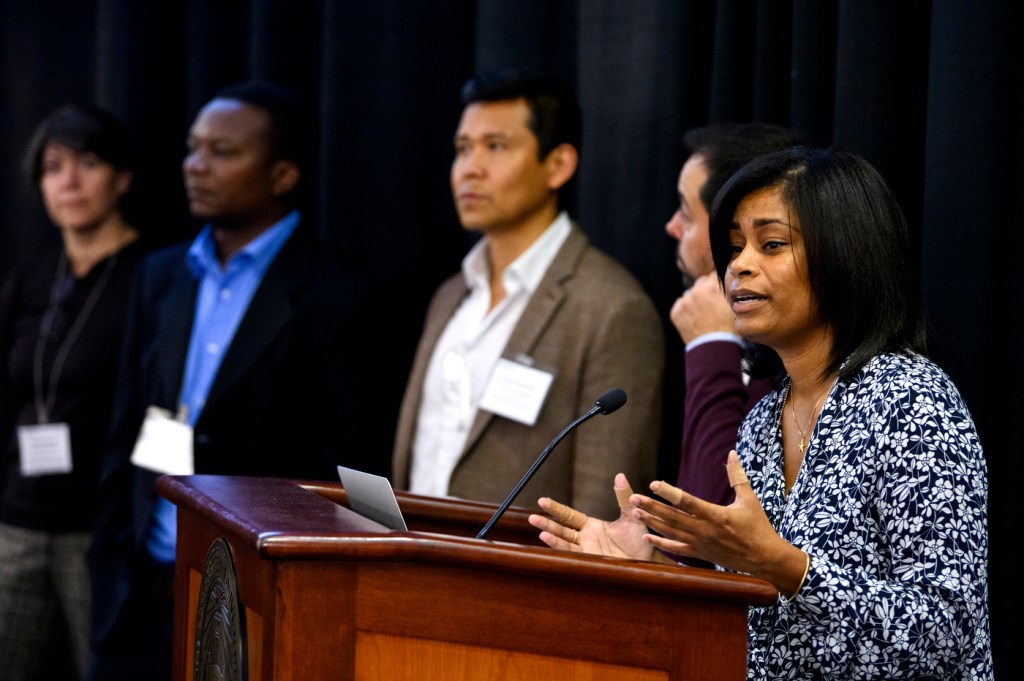
The Northeast Faculty Leadership Program, spearheaded by Northeastern, recently celebrated three years of identifying and promoting underrepresented minority STEM faculty from area colleges and universities.
The program was supported by a three-year grant that Northeastern received from Alfred P. Sloan Foundation.
“As we are all too aware, very few of our academic leaders represent faculty of color and no existing leadership programs in academia tackle this important issue,” said Northeastern Provost and Senior Vice President for Academic Affairs David Madigan, addressing the program’s graduates, as well as the chairs, deans and provosts who nominated them.
“We must become more diverse, our leadership must become more diverse,” he told those gathered in the Egan Research Center on Northeastern’s Boston campus.
The program was created in collaboration with six other Boston institutions: Boston University, Harvard T.H. Chan School of Public Health, Massachusetts Institute of Technology, Suffolk University, Tufts University and the University of Massachusetts Boston.
“This program is unique, especially in this part of the country,” Madigan said.
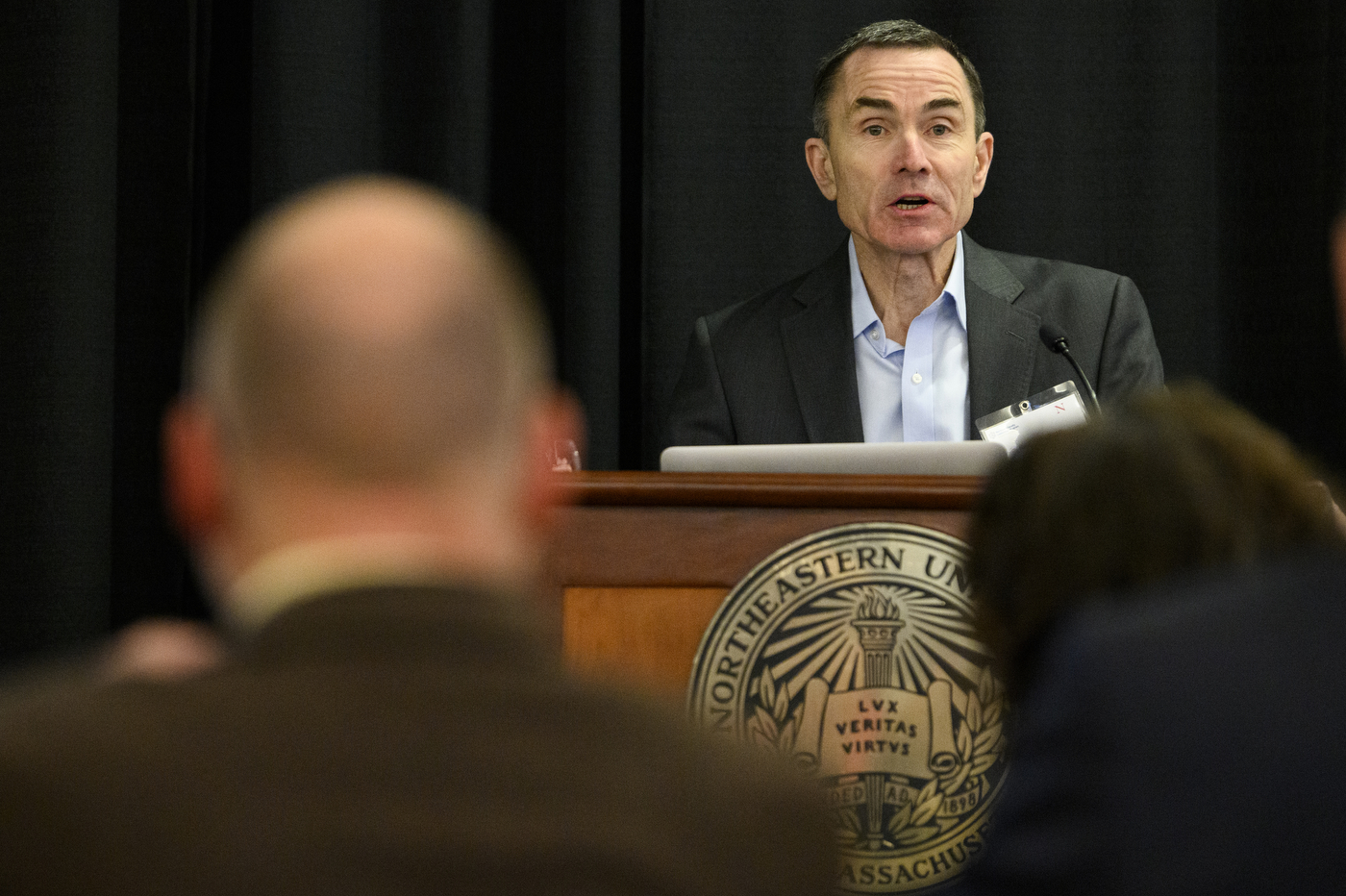
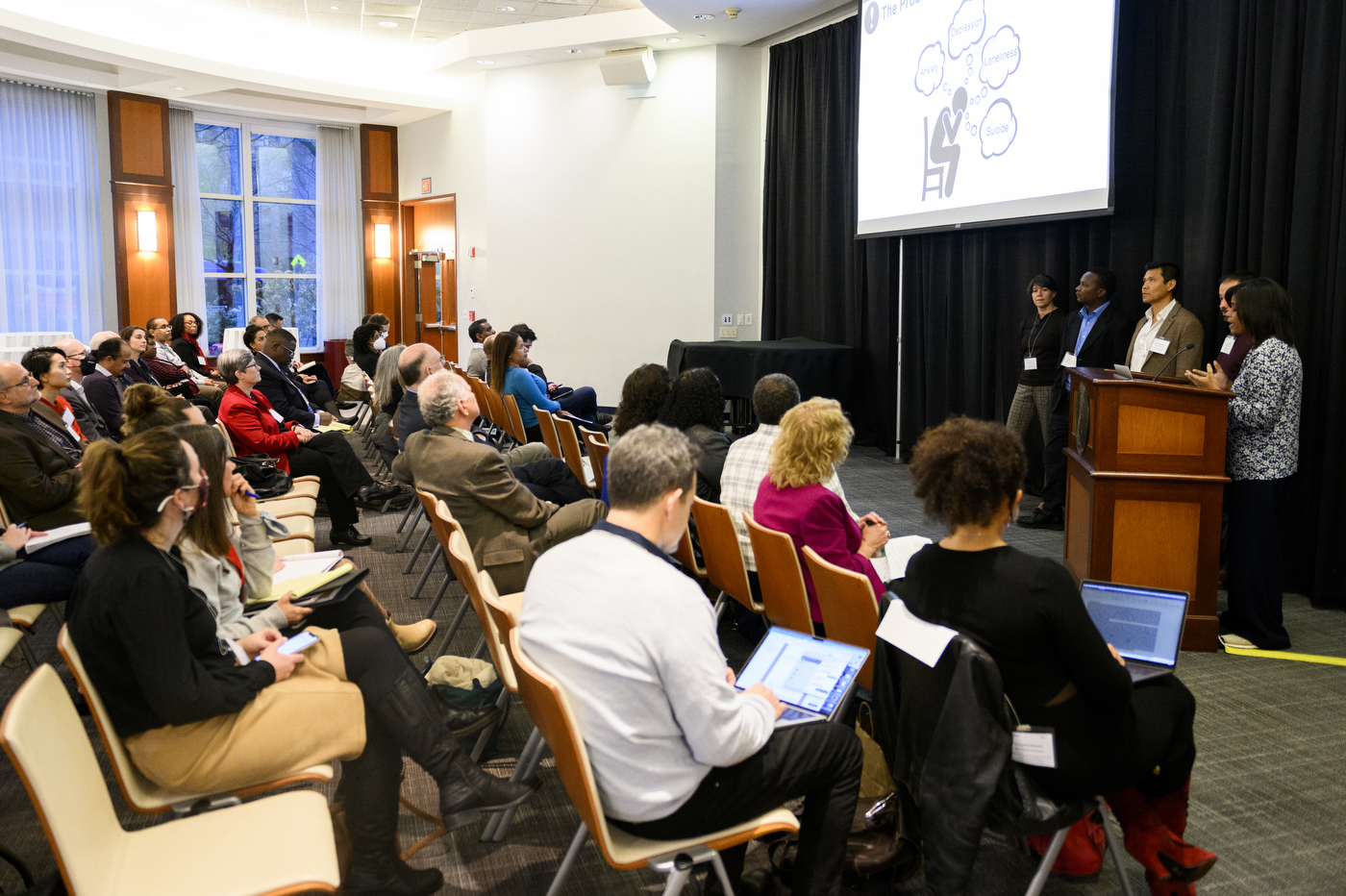
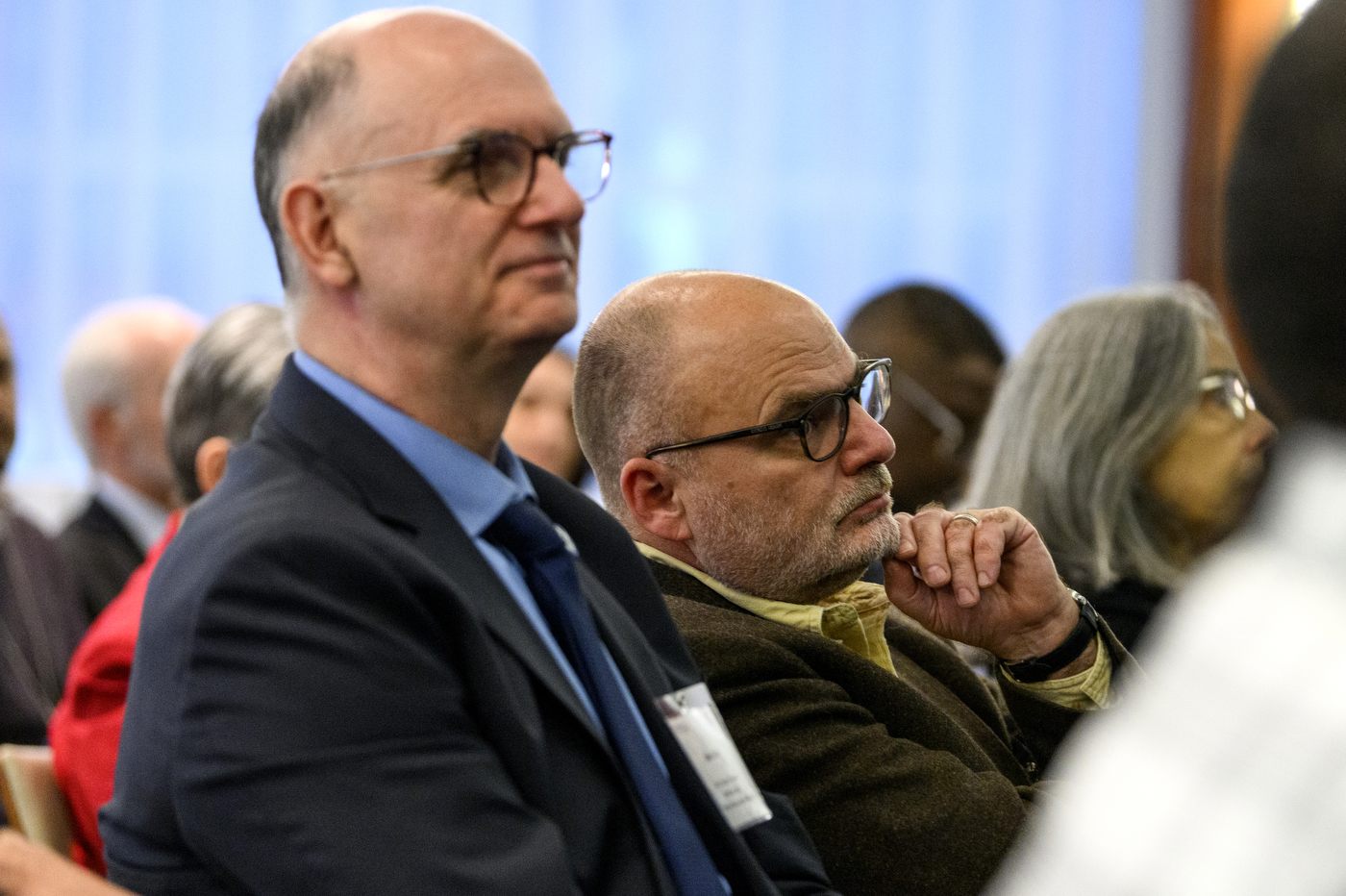
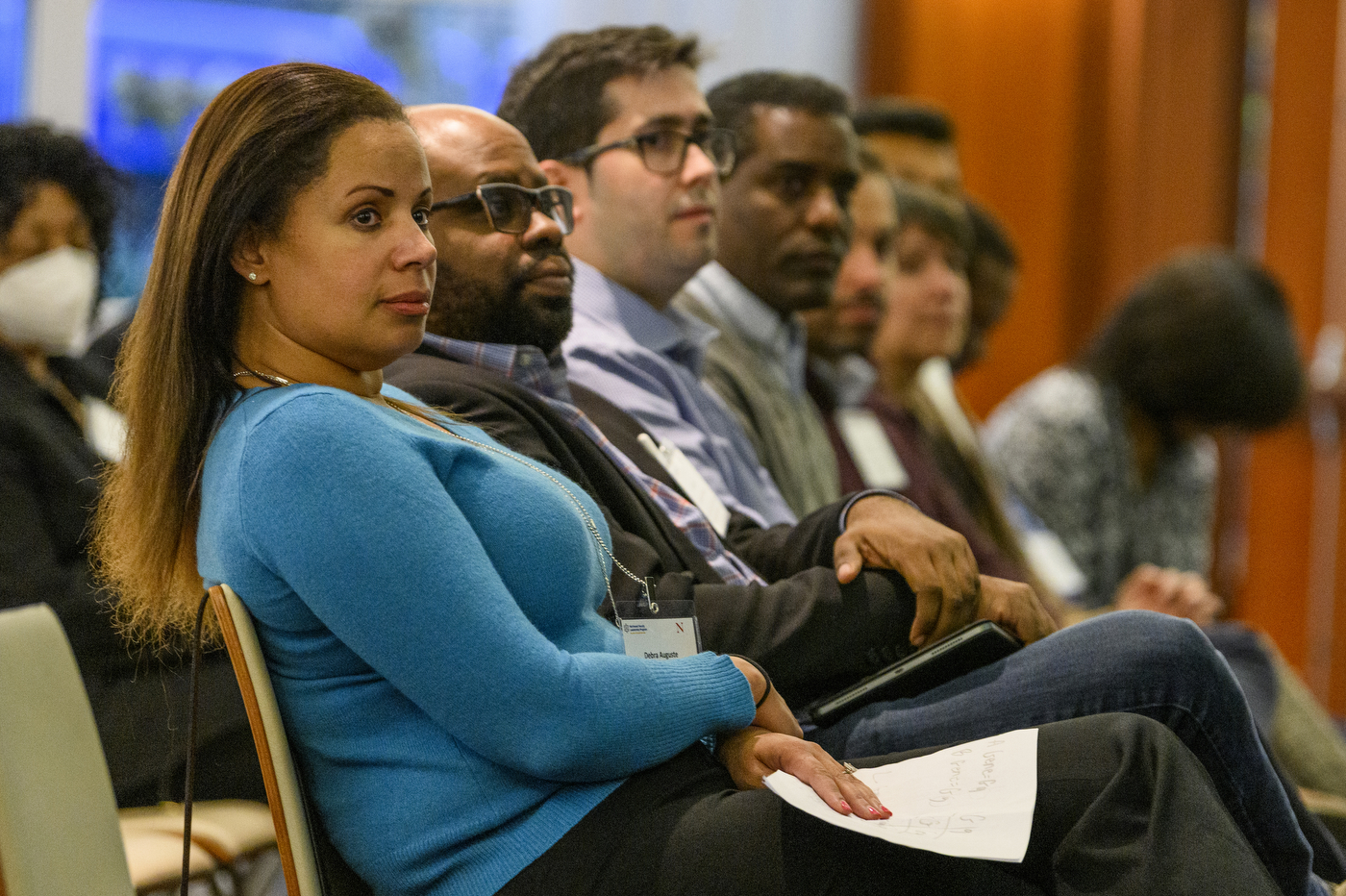
The leadership program launched in January 2020 and the inaugural class consisted of 14 participants who were nominated because of their potential to become academic leaders.
“Over half of the first cohort participants have now moved into leadership roles at UMass Boston, Boston University, Duke University, MIT, the University of Texas and Northeastern,” said Debra Franko, senior vice provost for academic affairs at Northeastern and director of the program.
The event also celebrated the 17 latest participants in the six-month leadership program. In addition to the original consortium that launched the program, faculty from Salem State University, Wheaton College, the University of Connecticut and Wellesley College have also joined.
“For our faculty leaders, we wanted to enhance their self-perception as leaders, to see themselves as leaders and to develop their skills so that they would be even more likely to move into an academic leadership position,” Franko said.
The leadership program also aimed at giving participants an opportunity to broaden their career networks by building interdisciplinary connections and increasing their visibility as future leaders across different educational institutions, she said.
Each cohort of participants completed a four-day workshop, which included meetings with university leaders and administrators on how they operate and what motivates their leadership. The final team project required participants to investigate an important challenge that universities face and present recommendations to provosts and deans from participant institutions.
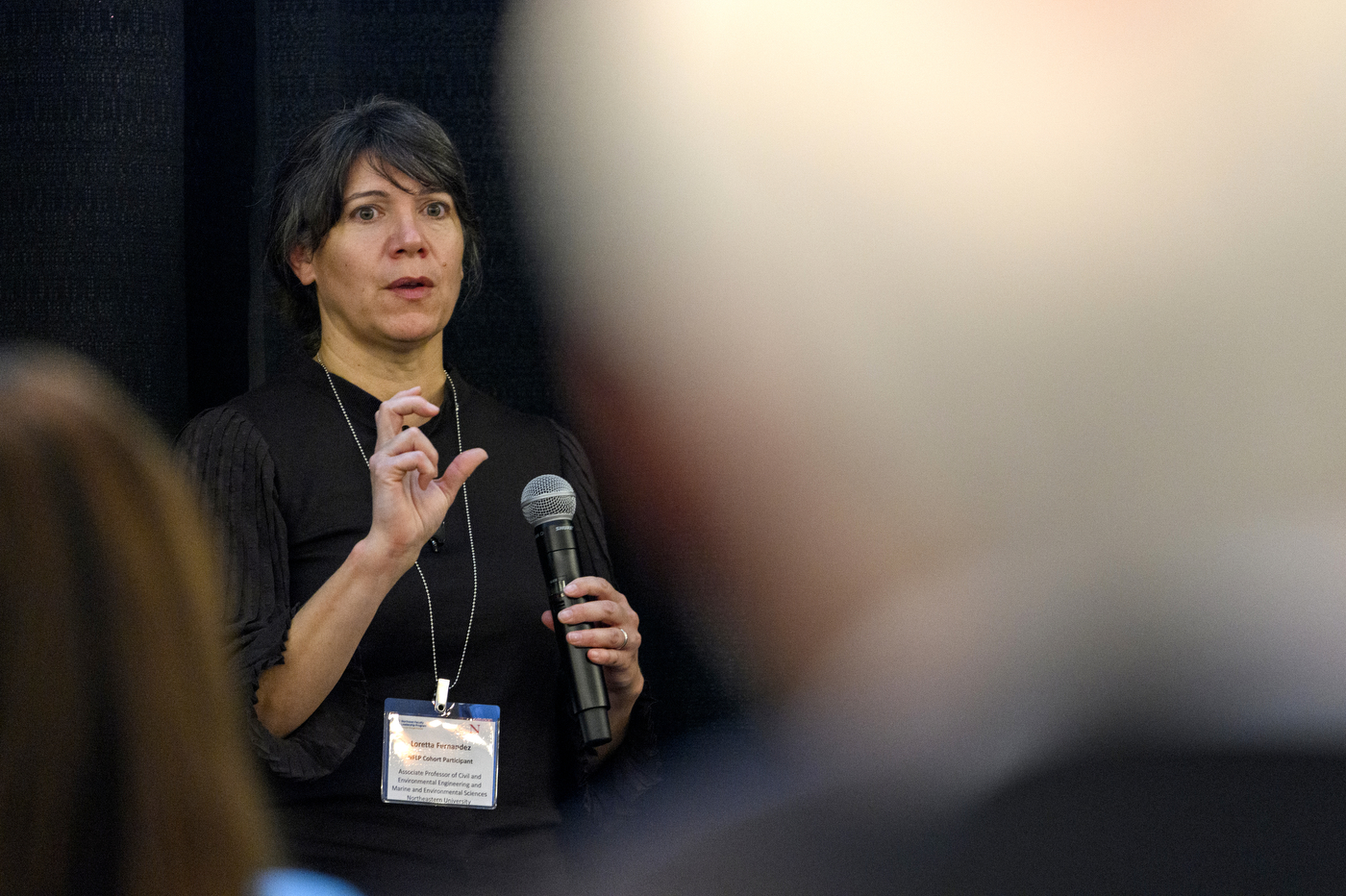
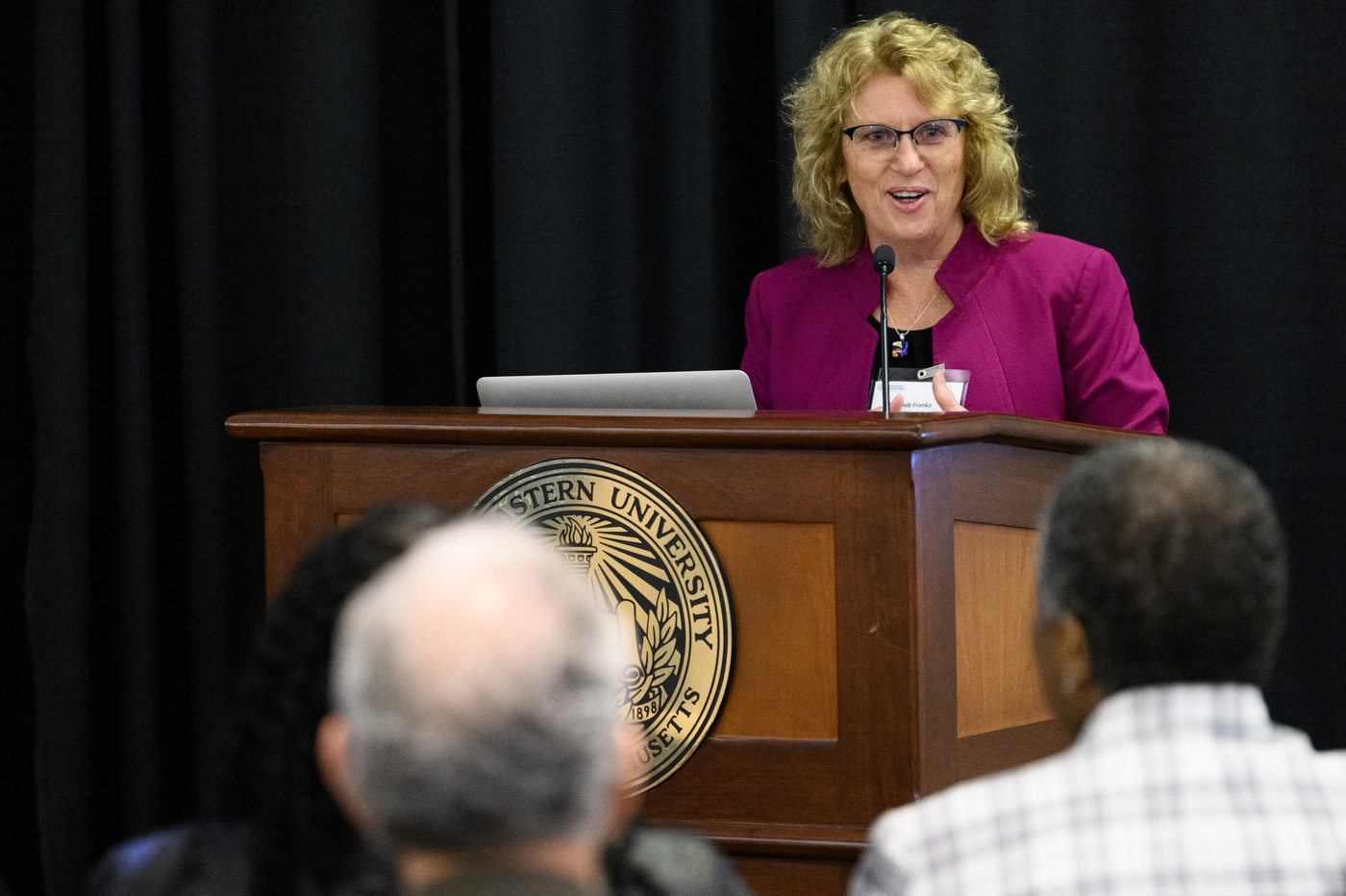
At the recent celebration event, teams presented their proposals for such topics as student wellbeing and mental health, adaptability in the face of change, interdisciplinary research, and increasing BIPOC STEM faculty’s belonging to foster success. Each presentation spurred lively discussion and suggestions from the audience.
Many participants said they didn’t know what to expect prior the start of the program.
Oscar Fernandez, associate professor of mathematics at Wellesley College, appreciated that the program was focused on STEM and faculty of color. That ensured that the elements of the program spoke to that part of their identity and tailored leadership skills through that lens, he said.
“That really changed what got discussed, how it got discussed and the suggestions that we all made collectively,” Fernandez said.
Because faculty of color are still in the minority on college campuses, the leadership program brought down barriers, he said.
“We could interact and engage with each other and be a bit more of our true selves,” Fernandez said. “Whereas in other spaces we feel that changes the way we interact and communicate and how we collaborate.”
Adrian Feiguin, associate professor of physics at Northeastern, said he was wowed by the depth of the program. It created a sense of community among the participants, and allowed them to lose their inhibitions and be vulnerable to share their strengths and weaknesses.
“We learned a lot about how other people experienced academia depending on their background, their personal career path, where they come from, what it took them to realize the challenges and hurdles,” Feiguin said. “It was eye opening.”
Feiguin appreciated learning different styles of leadership, how to engage with people and how to tackle various situations and scenarios.
S. Tiffany Donaldson, professor of psychology at UMass Boston, said she didn’t see herself in academic leadership prior to participating in the program, even though she is a community organizer. It allowed her to think about how she would function as a leader, how to engender buy-in and how to take the perspective of others when trying to promote an idea.
“It’s something I can use anywhere. I can use it in my lab, I can use [it] in my department. I can use [it] in other spaces,” Donaldson said.
For media inquiries, please contact media@northeastern.edu.






